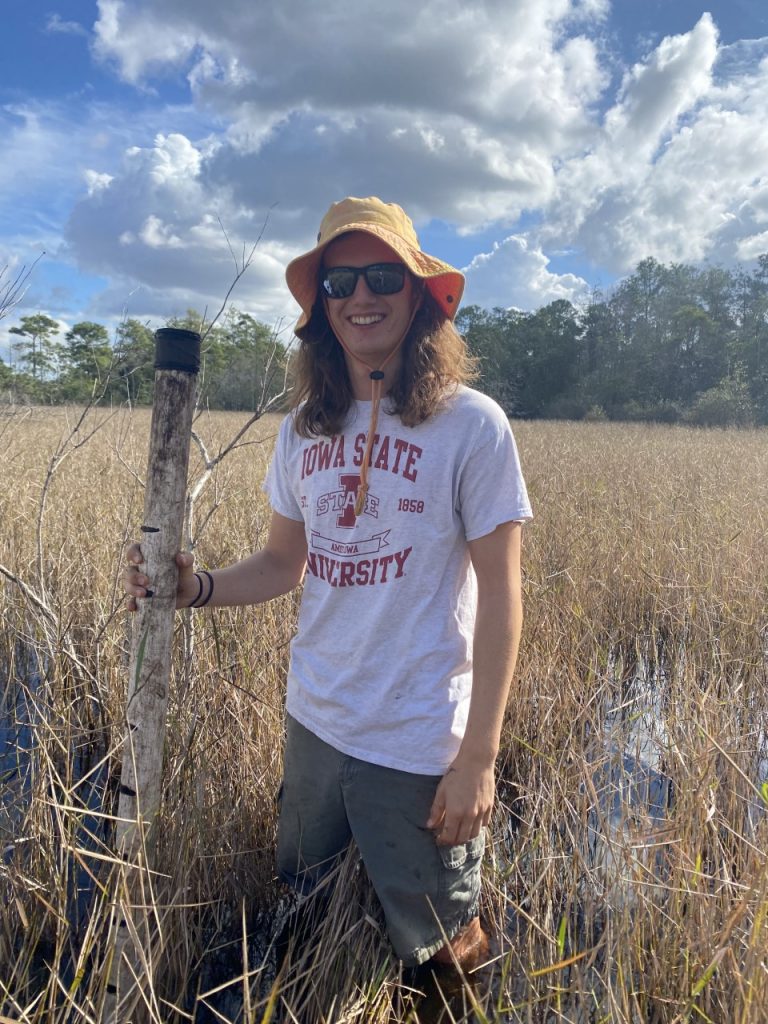Childhood Chasing Frogs Leads to Wetlands PhD Pursuit
A childhood chasing frogs in America’s heartland has led Anthony Mirabito to the cusp of a career saving wetlands. Today, Mirabito mixes classwork from the third year of his doctoral studies in Integrative and Conservation Biology with hands-on work in the Aquatic Biogeochemistry Lab at UCF led by Associate Professor Lisa Chambers Ph.D.
Mirabito pursues multiple lines of research in the Lab, including a project with the Army Corps of Engineers. Testing dredged and excavated materials for minerals provides key insights into how to improve and save wetlands. For example, adding certain minerals to wetland soils promotes the formation of mineral-associated organic matter, which stabilizes carbon pools within the soil. This can prevent wetlands from drying out and contributing to climate change by leaking carbon into the atmosphere.

Mirabito’s interest in ecology developed at an early age. Growing up in Iowa, Mirabito spent his days frequenting the state’s wetlands and fostering the reptiles he captured. During the rare times he was inside, he could be found either binging Animal Planet and the Discovery channel or on the family computer scouring the internet for facts about wolves.
In high school, he learned about composting through work on the school garden.
“The concept of turning old food scraps and paper products into soil that can essentially keep the cycle going was interesting to me. That got me into specializing in soil and trying to understand those processes,” explained Mirabito.
During his undergraduate degree at Iowa State, a professor mentioned his personal research in biogeochemistry, the intersection of Morabito’s interests. He went on to work as a volunteer in the professor’s lab, then was hired as a research technician a few months later.
“I didn’t look back after I found the lab; I really enjoyed the research. I knew I wanted to stick with that field,” said Mirabito.
After graduating, he took a gap year and followed his wife to Florida. When he decided to pursue his Ph.D., he found the Aquatic Biogeochemistry lab led by Chambers.
Aside from the research, his favorite aspect of the lab is the social atmosphere.
“I’ve been fortunate enough to work with a great group of people. That makes coming to the lab and staying here very easy.”
Mirabito is also vice president of UCF’s Wetlands club, which serves as a social outlet for those involved with the lab and anyone interested in wetlands. The club holds hikes, kayak paddles and beach clean-ups to promote the beauty and importance of wet ecosystems.
Mirabito still spends his free time enjoying the serenity marshes and mangroves have to offer, but instead of collecting frogs, he sticks to soil samples.
“I think I found my niche. I really enjoy investigating coastal wetlands as like my kind of ecosystem. I think they’re really dynamic and there’s a lot to still unpack.”
